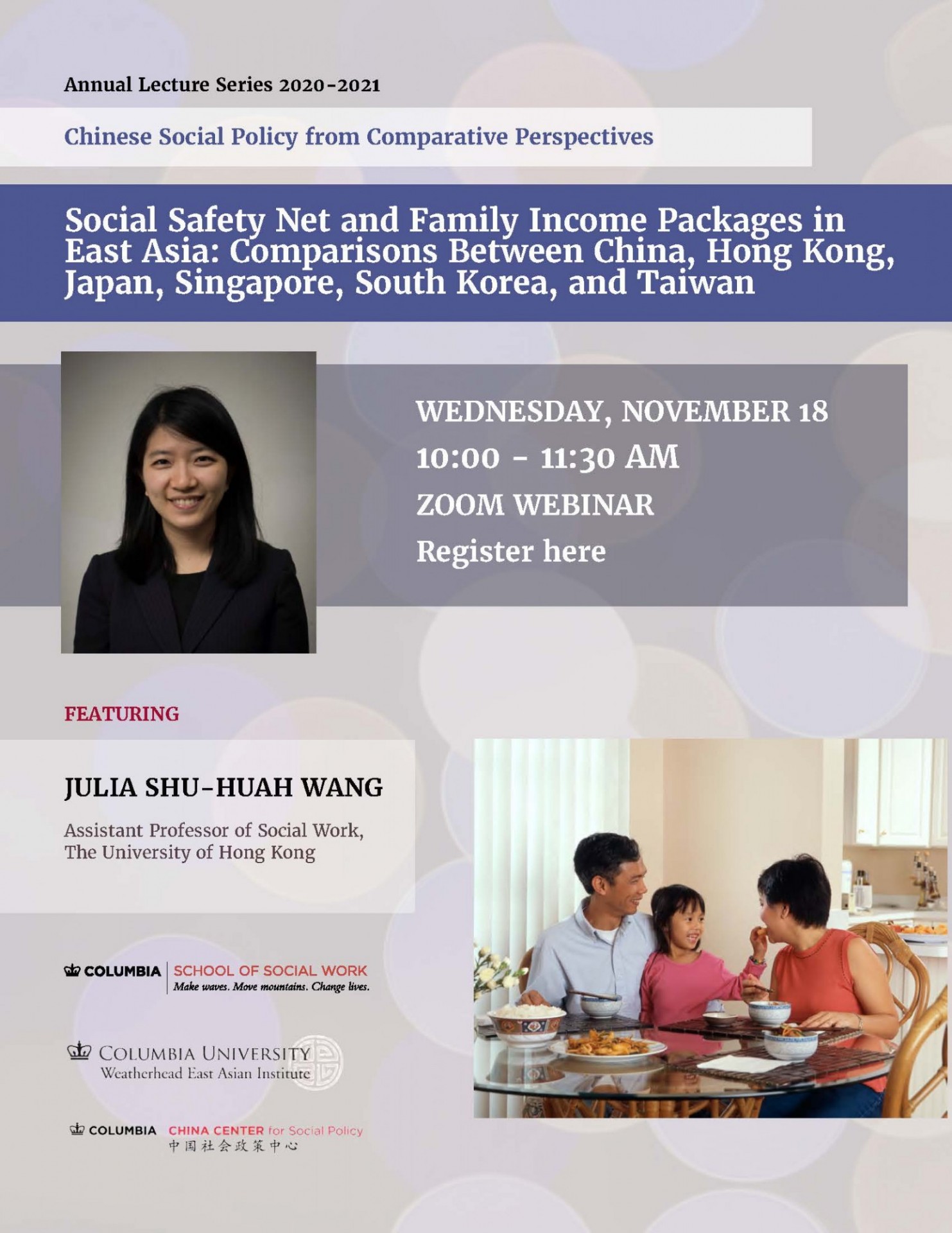About the Event:
East Asian social welfare systems have been traditionally described as productivist regimes in which most social investments focus on elements of welfare that can induce economic growth. Emerging literature points to the evolving and divergent features of social safety nets within East Asia. Although these inquiries are informative, extant East Asian welfare comparative research often focuses on a limited set of social policies and seldom captures the bundle of welfare programs or the contexts in which these programs operate (e.g., tax systems and service costs). This study extends the understanding of East Asian welfare systems by comparing social safety nets in mainland China, Hong Kong, Japan, Singapore, South Korea, and Taiwan using a model family approach. The model family approach entails collecting income-packaging data in each location, and this approach can shed lights on the coverage, eligibility and benefit levels of social safety nets. We focus on collecting data for 2019. Specifically, income packages include labor income; cash benefits; tax benefits; and the cost of services such as health care, education and childcare in each location for each family profile. This study’s findings can contribute to the debate on the contemporary landscape of East Asian welfare models and inform policymakers in East Asia of the strengths of social safety nets in their countries relative to others.
About the Speaker:
Dr. Julia Shu-Huah Wang is an Assistant Professor at the Department of Social Work and Social Administration, the University of Hong Kong. Her research focuses on social welfare policies, poverty alleviation interventions, immigration policies, and the well-being of families. She is currently working on several research projects, including impacts of social policies on families; impacts of migration policies; poverty and social safety nets in East Asia (Taiwan, Hong Kong, mainland China, Singapore, Japan and South Korea) and the US; community-level poverty alleviation interventions (e.g., asset development programs and co-operatives) in Uganda and mainland China; and the policy advocacy in Hong Kong. Dr. Wang has practice experience working with families and children, and she also has experience in advocacy, policy analysis, and program evaluation. She received her bachelor’s degree from Department of Social Work, National Taiwan University, and PhD degree from Columbia University School of Social Work.
